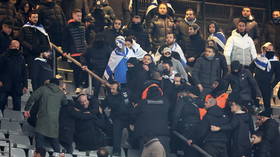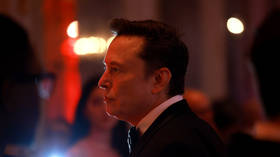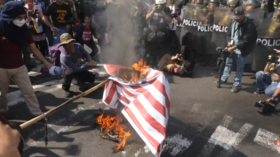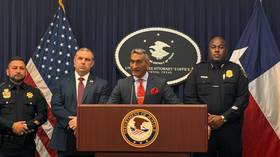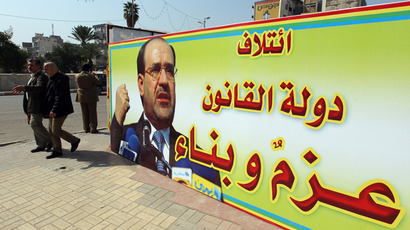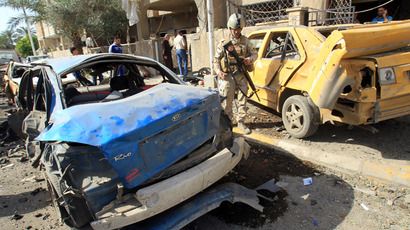Iraq 10 years on: ‘Roadblocks, checkpoints, blasts and constant danger’
Stability is something people are still waiting for in Iraq – ten years after the US-led invasion. The promised stability is nowhere to be seen in places like Kirkuk, RT’s Lucy Kafanov reported from one of the hard to get to places in Iraq.
Kirkuk has been a symbol for the country’s most intractable woes: escalating violence, the conflict among ethnic and religious groups, and the fight over Iraq’s resources.
Attacks and bombings have continued to increase in the oil-rich city in the north of the country, which is currently a center of ethnic and political tension over resources.
More than 270 lives were lost in attacks in Iraq in March alone. In the most recent blast at least 23 people were killed and more than 130 wounded after bomb blasts rocked four Shiite mosques in Baghdad and another mosque in Kirkuk.
Many Iraqis say they still feel unsafe in a country freed from Saddam's dictatorship, Lucy Kafanov reported.
One of the key challenges Lucy Kavanov faced while travelling through Iraq was actually getting to the town.
“We couldn’t even access the city without a military escort. A group of Kurdish soldiers had agreed to take us in. Both Baghdadis and the Kurds lay claim to Kirkuk and are sparring over control. Aside from the danger, those entering from the Kurdish side need special permission to get past the Iraqi checkpoints”, she said.
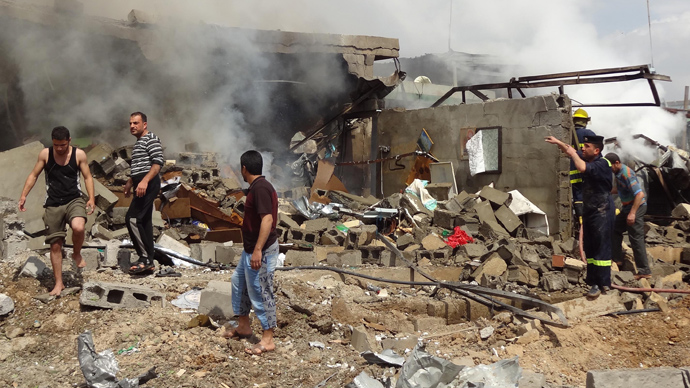
New Iraq is now defined by roadblocks and concrete barriers.
“Checkpoints are a dominant feature of life, and they are everywhere. Aside from the hassle, they’re also a frequent target of attacks. For us, it was blatant visual reminder of a country still very much at war.”
Despite the danger, life does not stop in Kirkuk. “We were expecting empty streets, but people continued to go about their business as normal. Vendors seemed busy. Families did their shopping.”
But if you look deeper, there are scars beneath the surface. “Residents here say attacks could happen at any time and in any place”, Kafanov reported.
Kirkuk resident Karwan Abdle Rahman believes that fear of political repression has been replaced by fear of the unknown.
“We don’t know who the enemy is or when the next bomb will go off. But it’s a daily fear so we’ve gotten used to it. I do small things to feel safer like driving with all the car windows down. That way, if there’s a blast, at least the glass won’t hurt us.”
For another local resident Fallah Mahmoud the daily life has become a painful struggle. He happened to be in the wrong place at the wrong time when a bomb went off, injuring his leg. He told RT that a decade of war has ruined Iraq.
“What benefit did the war bring? What democracy? Only explosions, shootings and kidnappings. People should feel free to go out and come back safely. Where is that? I can leave but there’s no guarantee I’ll come back alive”, he said.
For locals like Mahmoud the conflict in Iraq is not about “sectarian differences”, but about political interests, power and oil.



